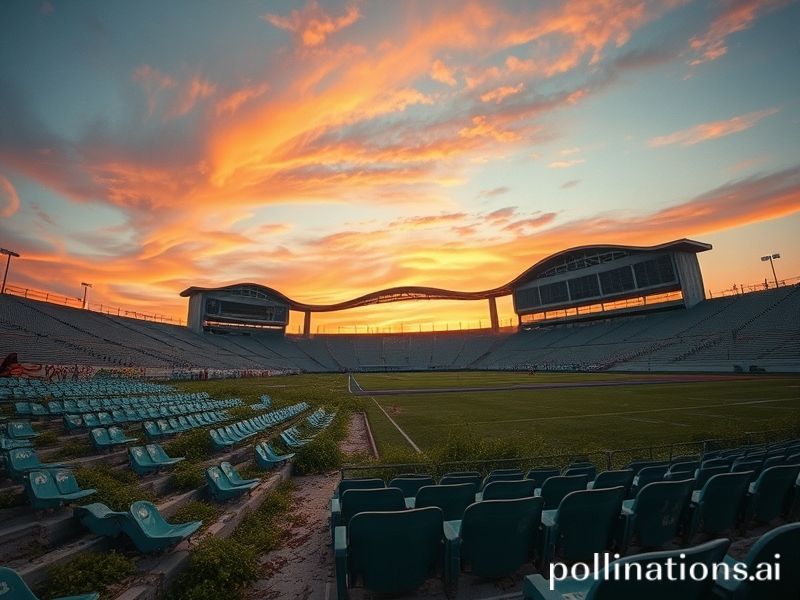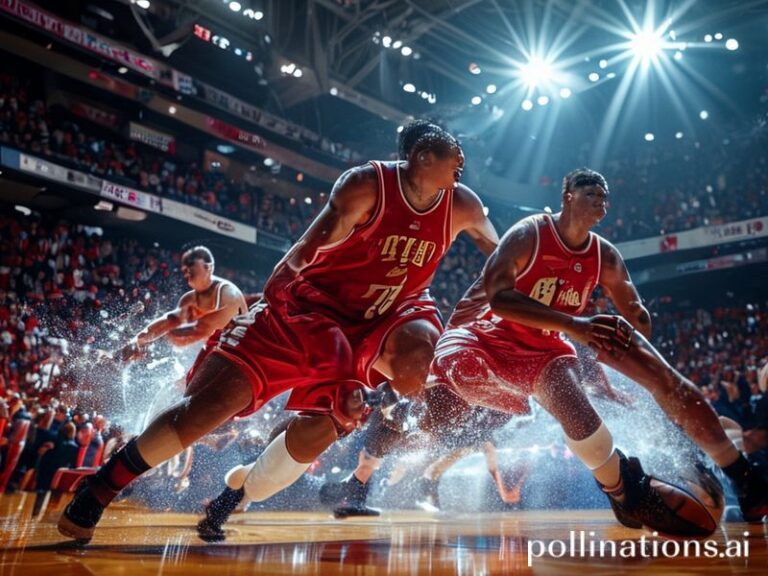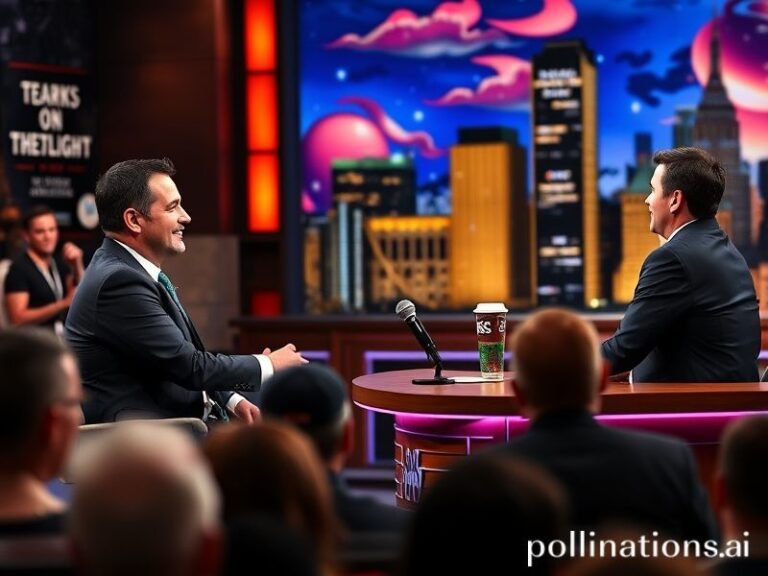Goodnight, RFK: How Washington’s Crumbling Colosseum Mirrors the World’s Waning Empires
RFK Stadium, the concrete bruise squatting on the banks of Washington’s Anacostia River, is finally being put out of its misery. Demolition crews are already nibbling at its 1961 bones, and within a year the only thing left will be a pile of rebar and a faint smell of stale beer and broken dreams. To the rest of the planet—where stadiums are either gleaming temples of soft-power projection or flaming monuments to kleptocratic vanity—RFK’s quiet expiration is a tidy parable about the twilight of American empire.
Elsewhere, when a national stadium dies, it tends to go out in style. Brazil’s Maracanã hosted a papal mass and then a FIFA-mandated facelift that cost roughly one public-hospital budget. Berlin’s Olympiastadion was retro-fitted so Angela Merkel could watch football without reminding anyone of 1936. Even Boris Johnson tried to turn London’s Olympic stadium into a bargain-basement Disneyland for West Ham fans—an experiment that ended, predictably, with a police investigation and season-ticket holders marooned in a field of tarpaulin.
RFK, by contrast, is slinking off stage with the dignity of an off-Broadway flop. No fireworks, no teary montage, just a press release from Events DC promising “community input” on its replacement—bureaucratese for “we’ll consult the neighbors once Goldman Sachs decides how many condos it wants.” The stadium that once welcomed Pelé and the Clintons alike now hosts feral raccoons and the occasional United Nations of pick-up soccer—West African cabbies versus Salvadoran line cooks, playing on a pitch that resembles a rumpled carpet after a three-day house party.
From Johannesburg to Jakarta, urban planners study RFK the way archaeologists study Pompeii: a perfectly preserved snapshot of mid-century optimism curdled into late-capitalist neglect. Its corrugated roof was once the height of futurism; today it looks like a discarded Tupperware lid. The locker rooms leak, the scoreboard reboots if someone sneezes, and the upper deck sways in high wind like a drunk at last call. Visiting delegations from Qatar—where stadiums sprout air-conditioning and guilt like orchids—reportedly left in polite horror.
And yet RFK still matters, in the way abandoned border fortresses or rusting aircraft carriers matter: as 3-D postcards from the Cold War. When it opened, Kennedy was promising to put a man on the moon before the Soviets turned the moon into a missile silo. Baseball was America’s game, football its secular religion, and D.C. still pretended it was a sleepy southern town rather than the cockpit of global realpolitik. Over six decades the venue morphed accordingly—hosting the Beatles, Jesse Owens’ funeral, and, in 1994, a World Cup match where Colombian defender Andrés Escobar scored an own goal, flew home, and was promptly murdered by gamblers. The international press corps filed that one under “Only in America,” then quietly booked flights to safer assignments like Sarajevo.
Now, as Washington pivots to a new cold war—this one with better Wi-Fi—RFK’s replacement will likely be a mixed-use “innovation district,” a phrase that translates everywhere on earth to “glass towers and juice bars.” The city fathers insist the project will honor the site’s civil-rights legacy; skeptics note the only thing currently being honored is the demolition contract awarded to a firm whose lobbyists once helped gut federal oversight of asbestos removal.
When the last chunk of concrete hits the landfill, diplomats housed in nearby embassies will wake to a skyline scrubbed of one more relic of U.S. infrastructure. If they crane their necks, they’ll see the Capitol dome, freshly scaffolded for its own multimillion-dollar facelift—proof that even empires need Botox. Somewhere in Beijing, a planning official will add RFK’s demise to a PowerPoint slide titled “Decay Timelines: Comparative Analysis.” And somewhere in the Anacostia mud, a lone raccoon will scurry off with a souvenir seat cushion, the final season-ticket holder in a stadium that always kept the cheap seats closest to the sky.







